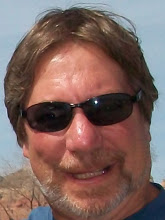The last time Davey Johnson was in Cincinnati the field was astroturf.
"There's real grass now and no dog poop," Johnson said before his Washington Nationals took the unsoiled, grass field to play the Cincinnati Reds. Johnson is one of four managers to fashion winning seasons with the Reds since 1990. He joins Lou Piniella, Jack McKeon and Dusty Baker among the nine who have piloted the Reds since going wire-to-wire in 1990.
Johnson took over for Tony Perez, who was fired by Jim Bowden after just 44 games. He led the Reds to a 66-48 record in 1994. The Reds were in first place on August 12 when the players strike forced cancellation of the rest of the season and post season. He was at the helm when the Reds won the National League Central in 1995.
"What I remember most about Cincinnati was Marge Schott and no being able to get past the Braves," Johnson said. The Reds lost four straight to Atlanta, the team that took the NL East crown that season.
Marge Schott fired Johnson because he lived with his wife before he was married to her.
"It is a beautiful place and good to come back here. My wife's from here," Johnson said.
Johnson managed the New York Mets for five seasons before coming to Cincinnati. Ironically, he was fired by the Mets in 1990 while the team was in Cincinnati.
After the Reds he managed the Baltimore Orioles, his original team as a player, to the playoffs. He was there two seasons. After a year off, he managed the Los Angeles Dodgers for two seasons.
Since he has been an international manager, guiding teams in Europe and Asia.
"I've been to a couple of World Baseball Classics," Johnson said. "International baseball took a setback when the Olympics dropped it as a sport. That was the way it was funded. Europe is behind, the Netherlands plays good baseball drawing a lot of players from Curacao (in the Caribean) and Aruba. But they have baseball now in Russia and France. The Dodgers are in Italy. Soccer is still the number one sport but they play better baseball now."
Johnson was one of the first American born players to play in Japan. He was a teammate of Saduharu Oh, the leading Japanese home run hitter.
"Oh could have played in the big leagues. You would think with his leg kick that he couldn't handle the change up but they couldn't get him out. I thought there were a lot of players in the '70's from Asia that could play in the big leagues. Now they are going back and forth," Johnson said.


No comments:
Post a Comment